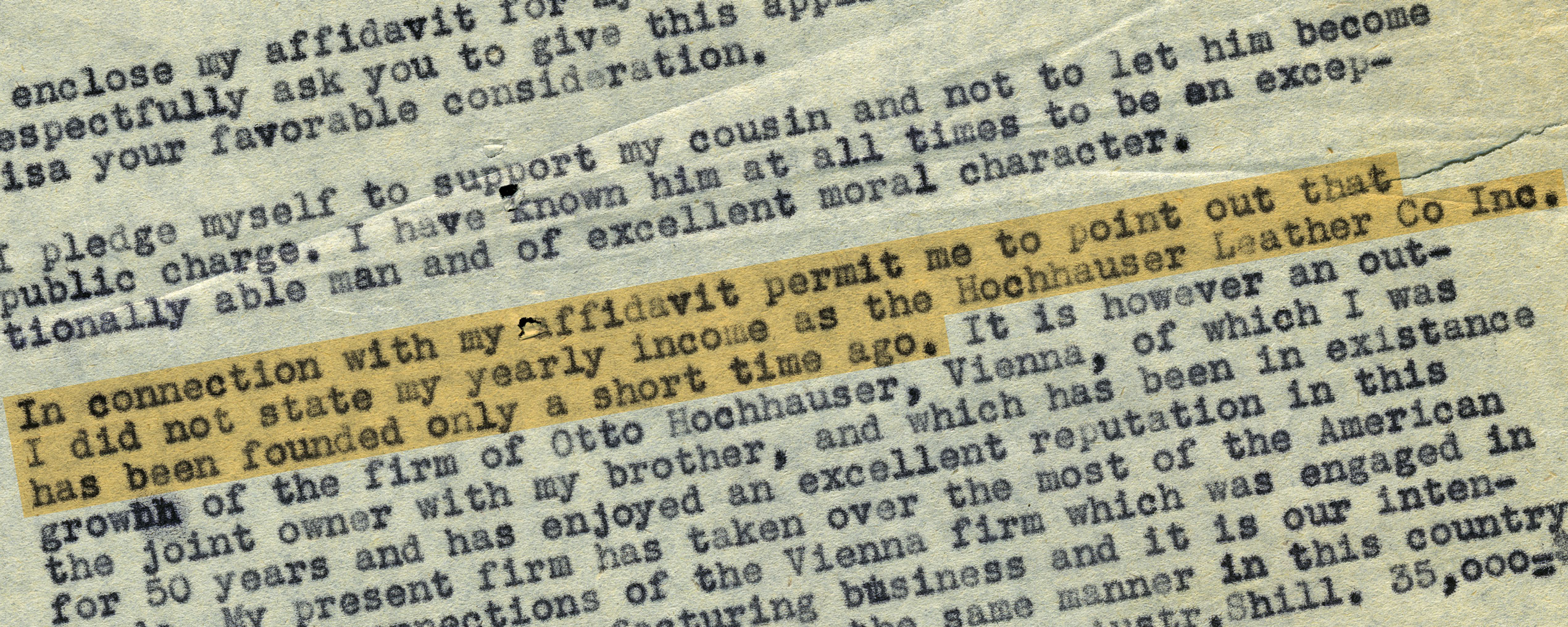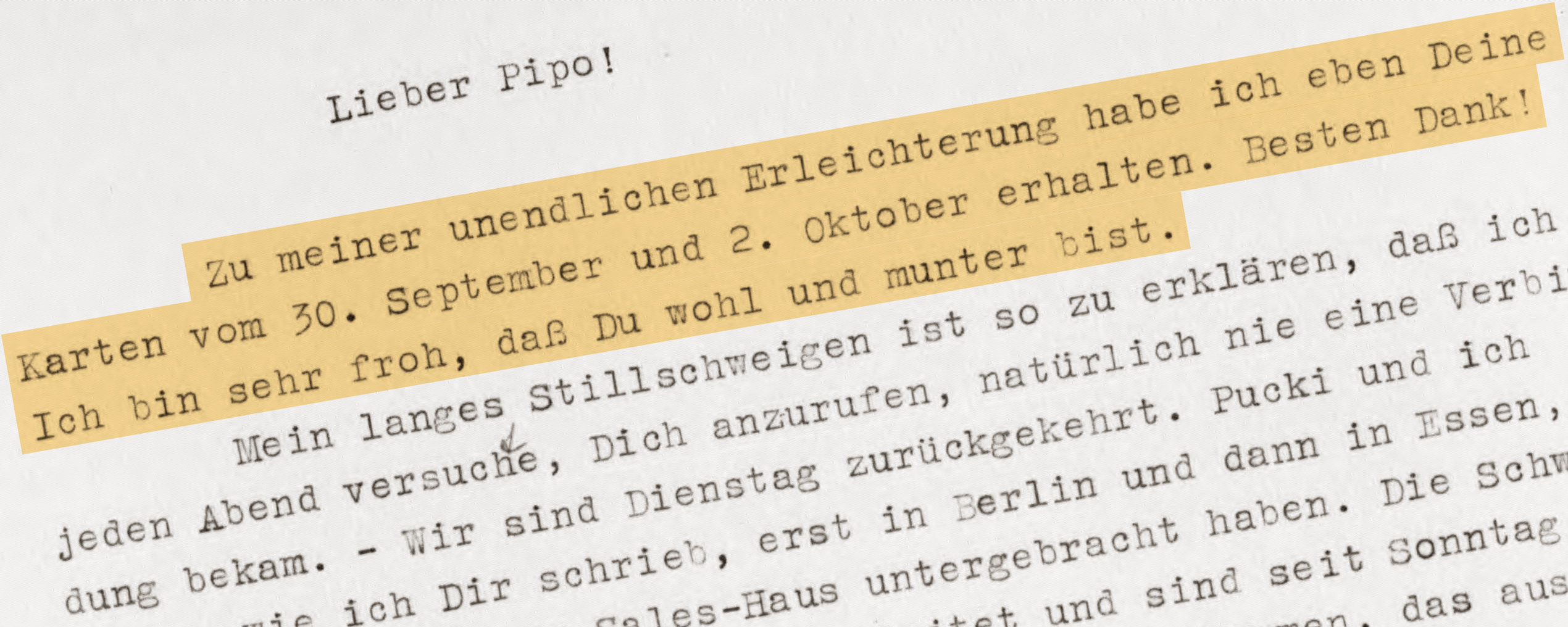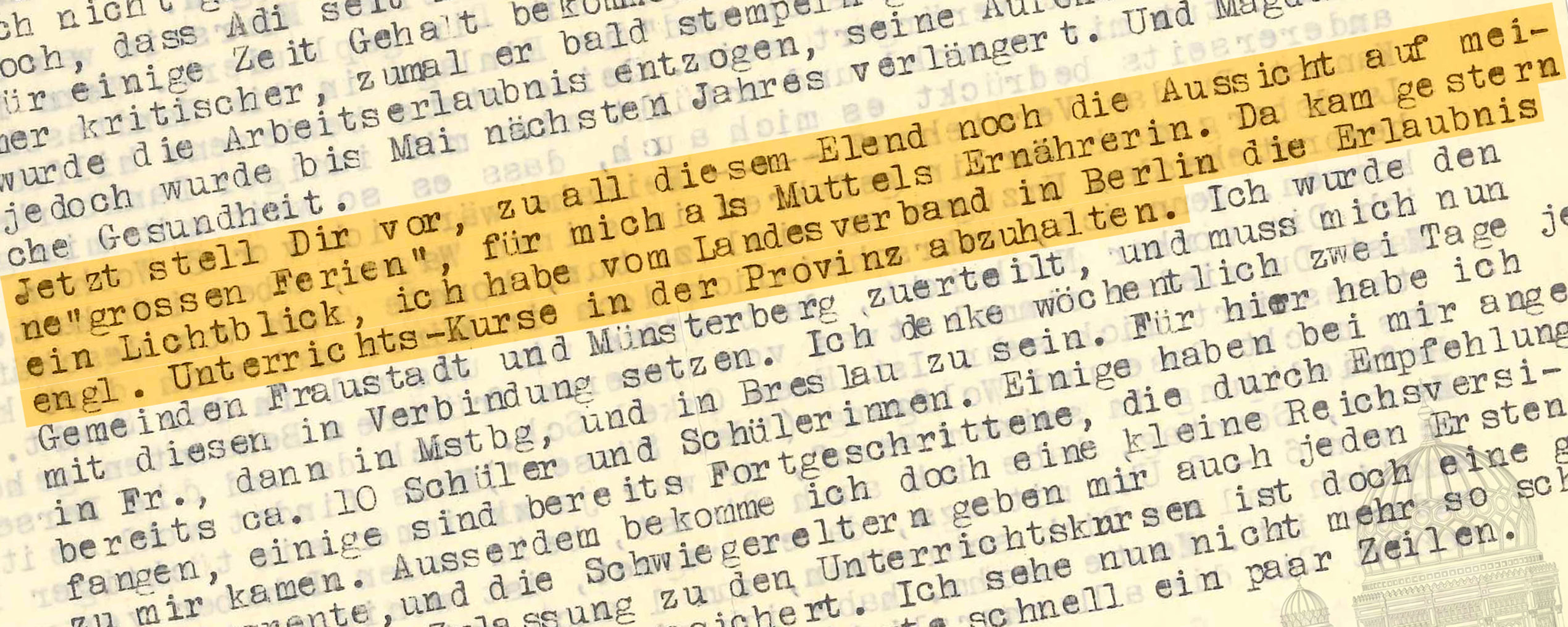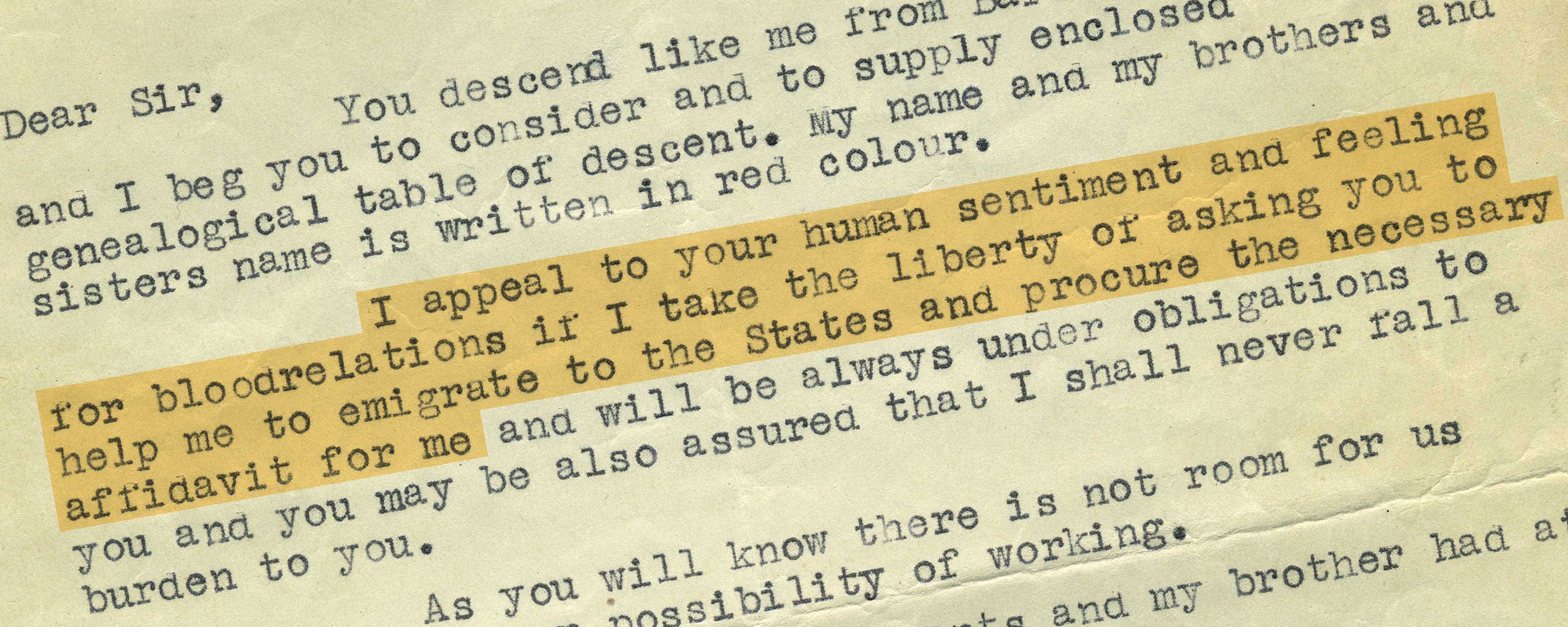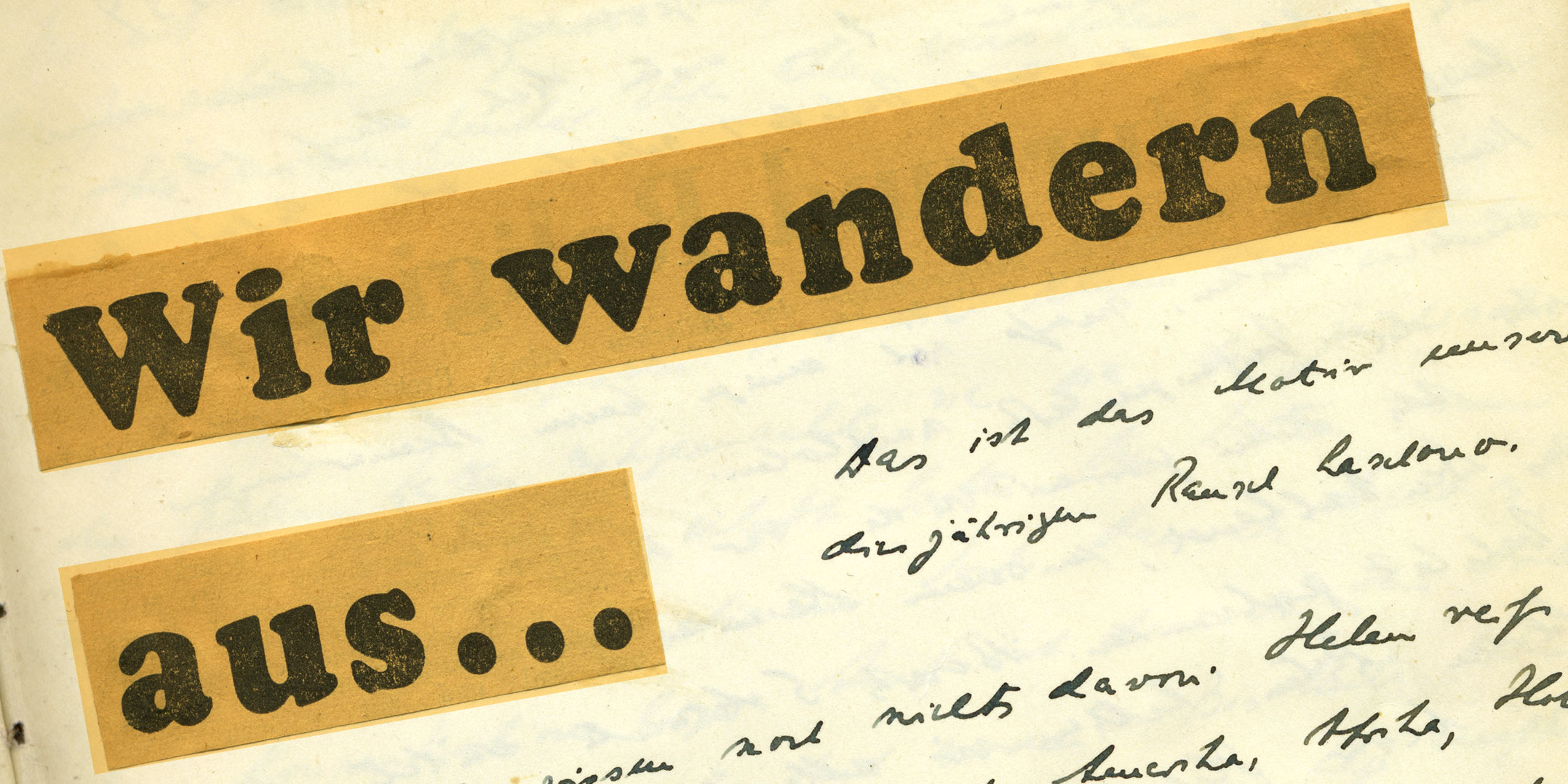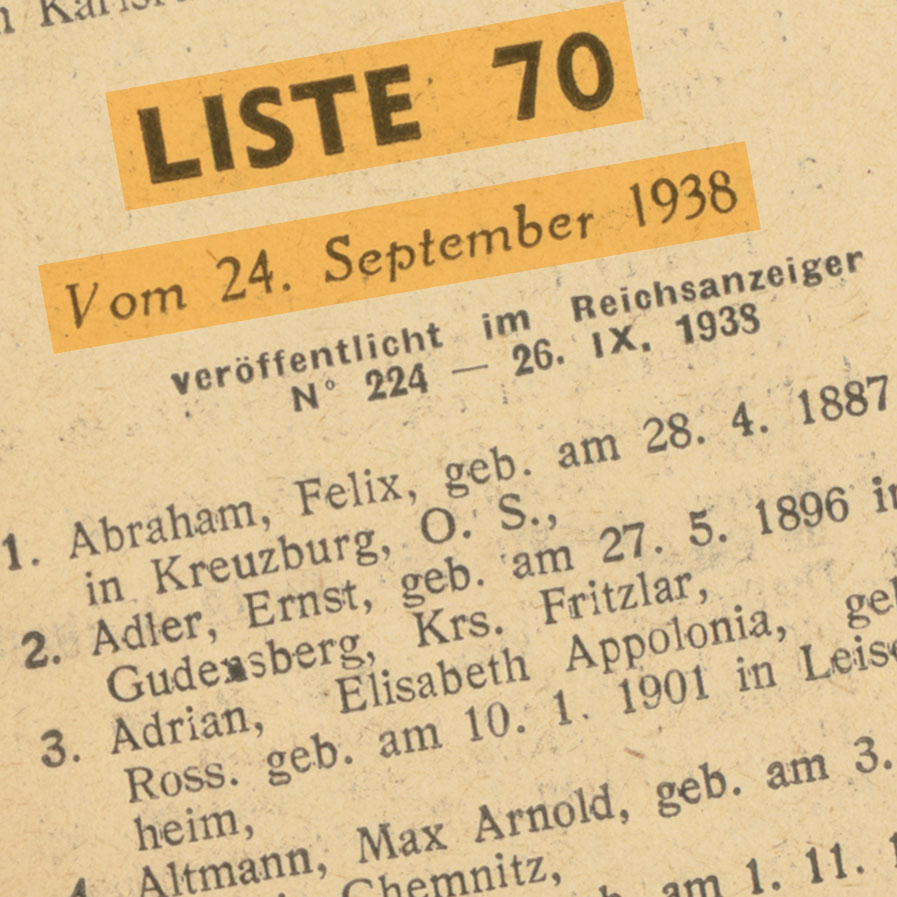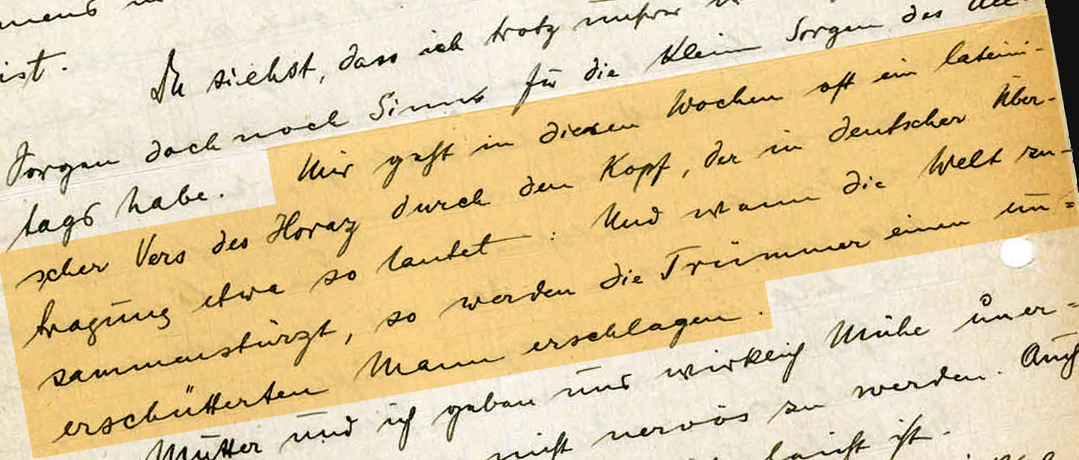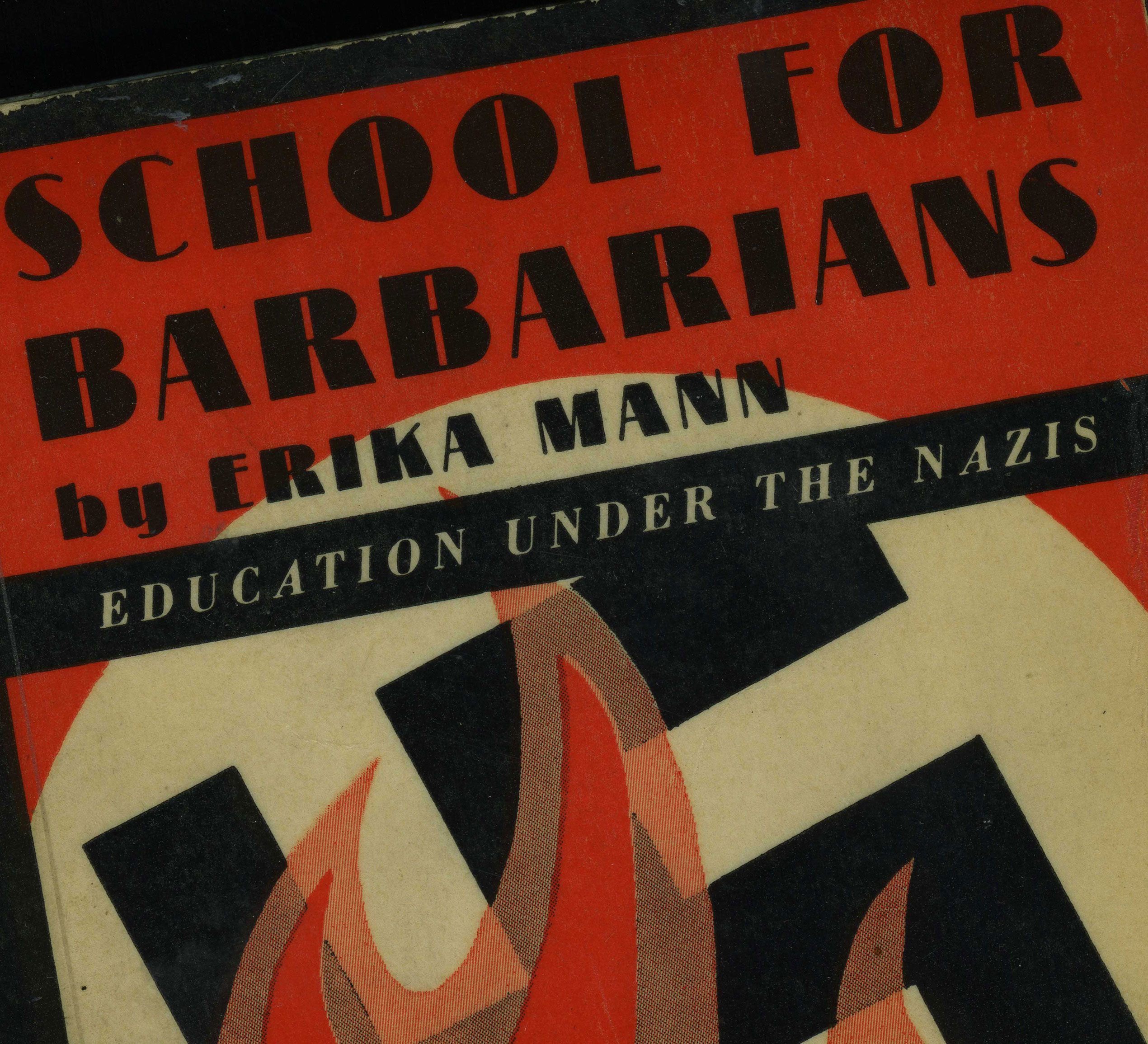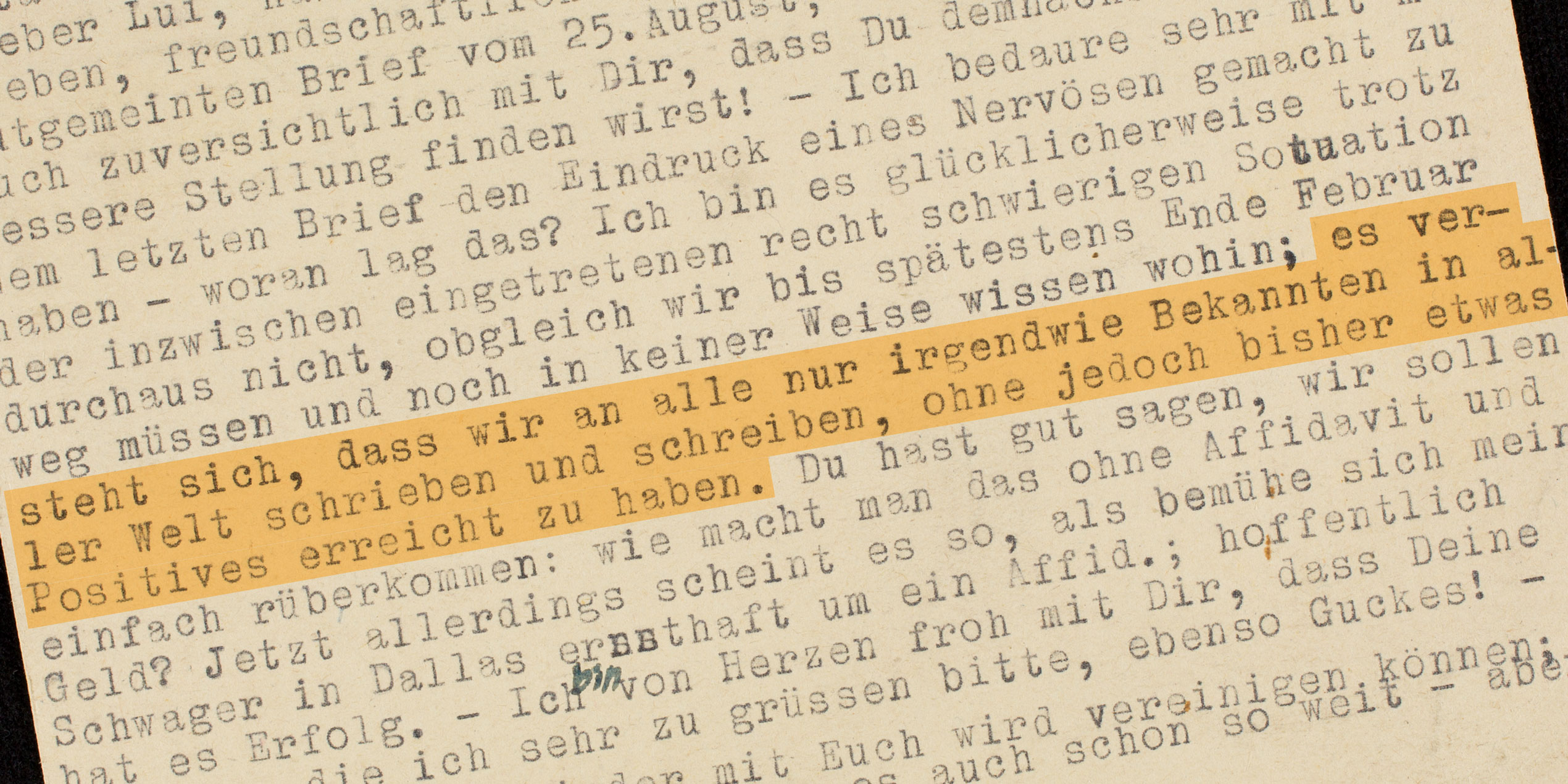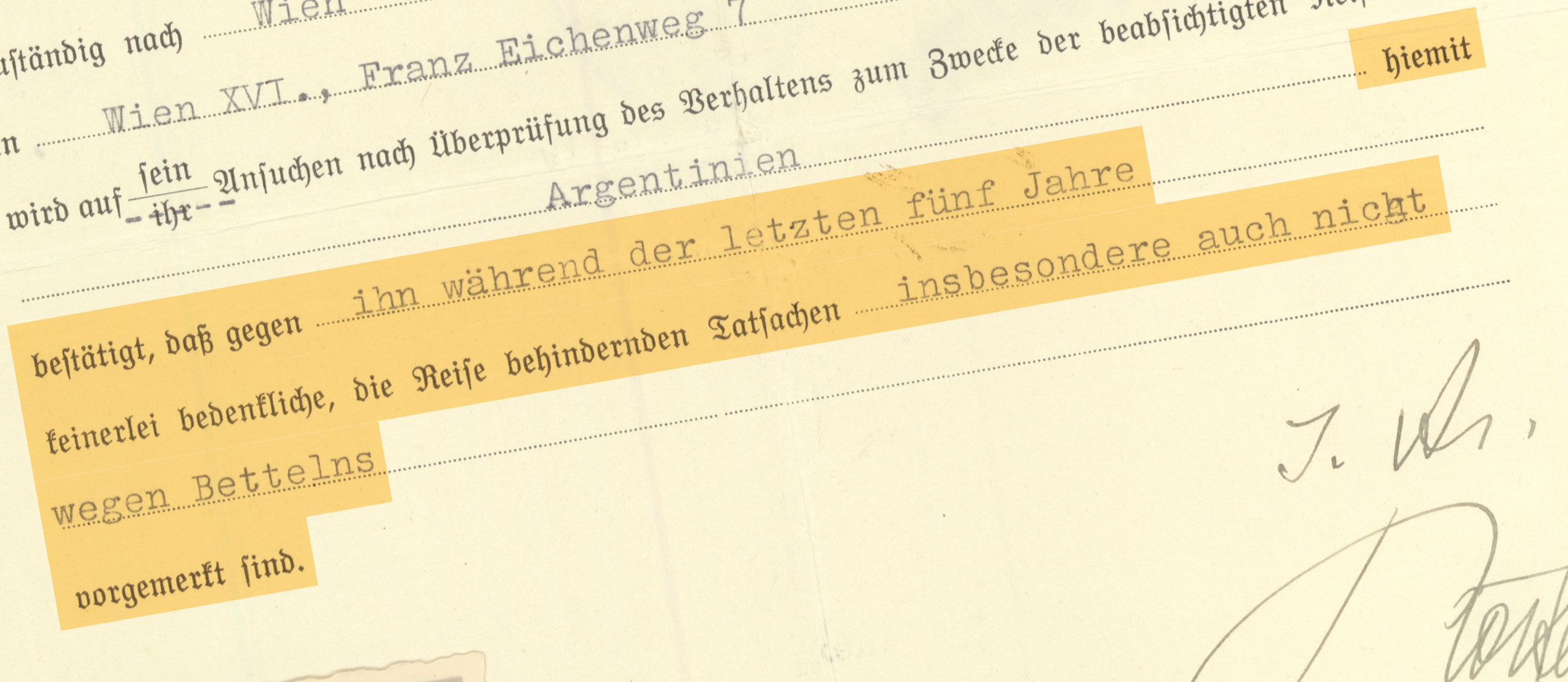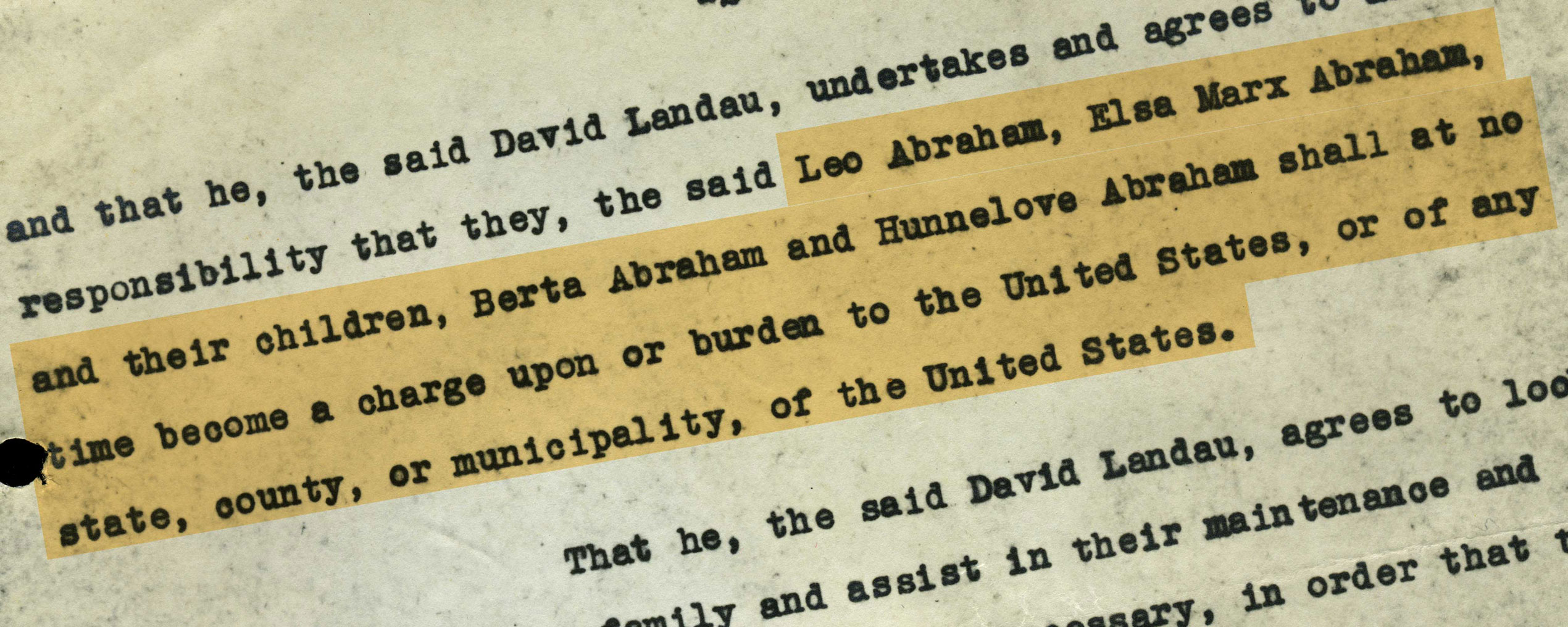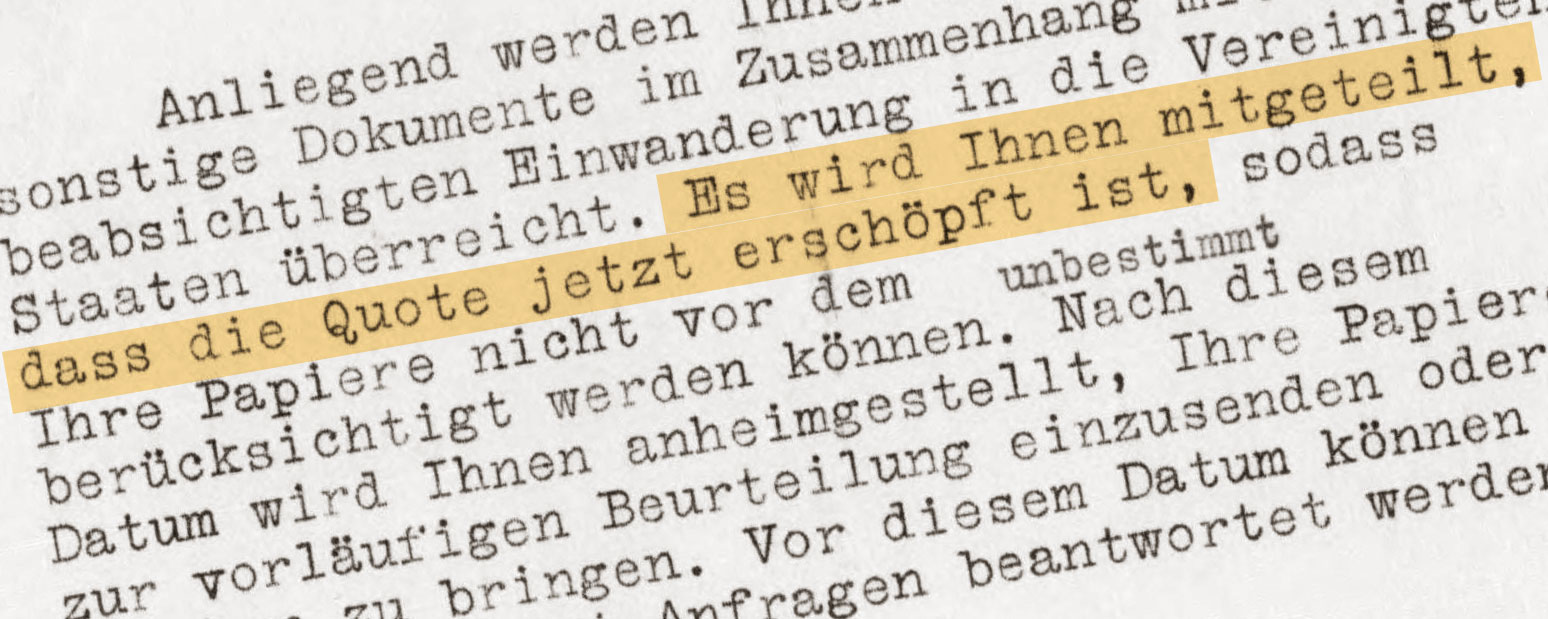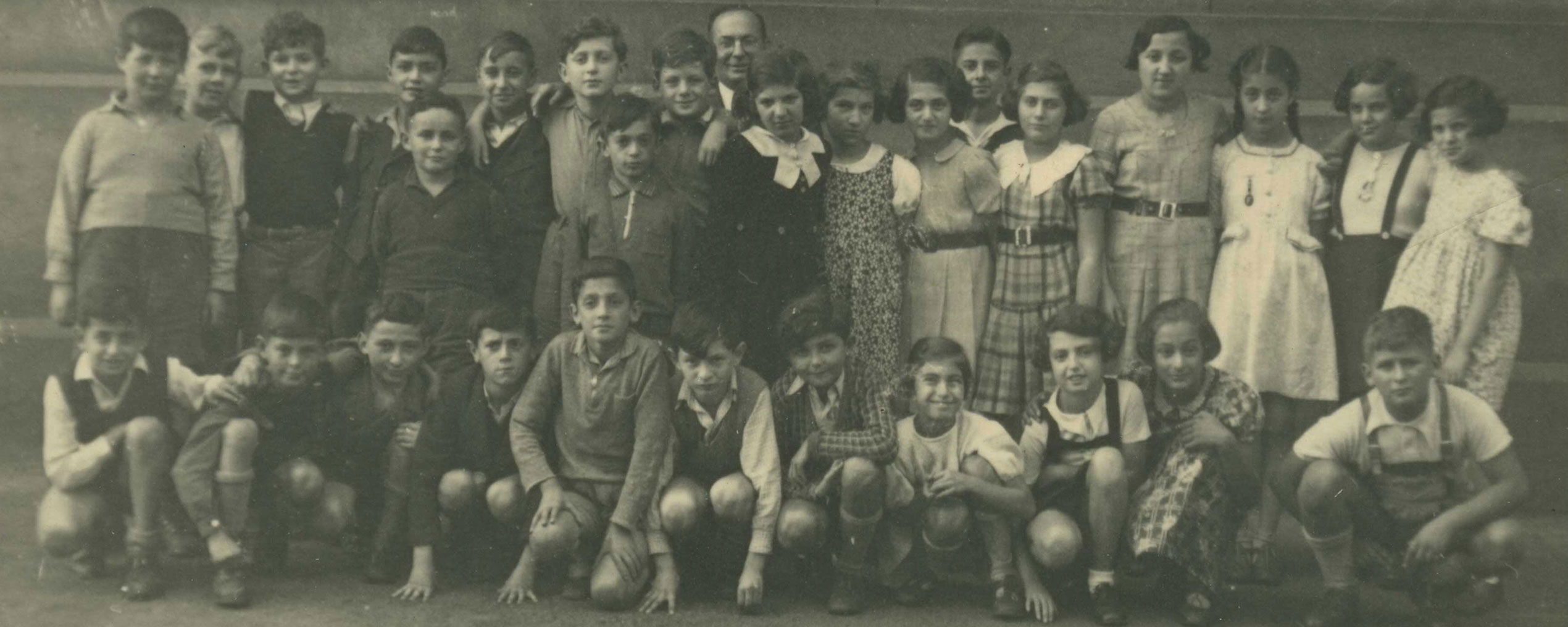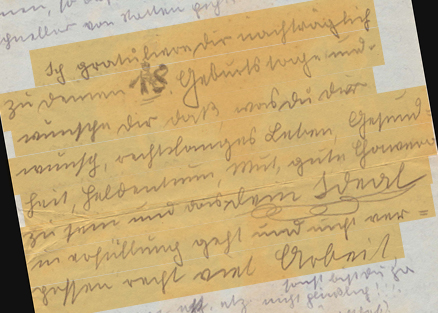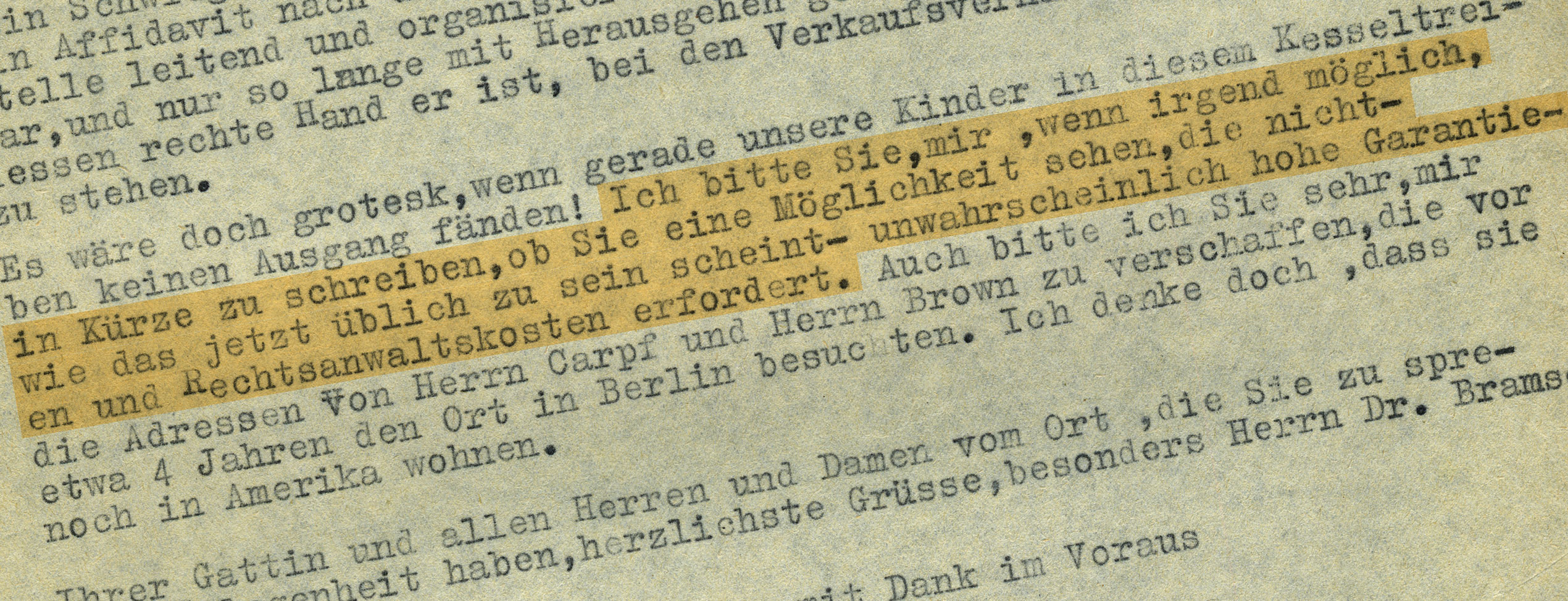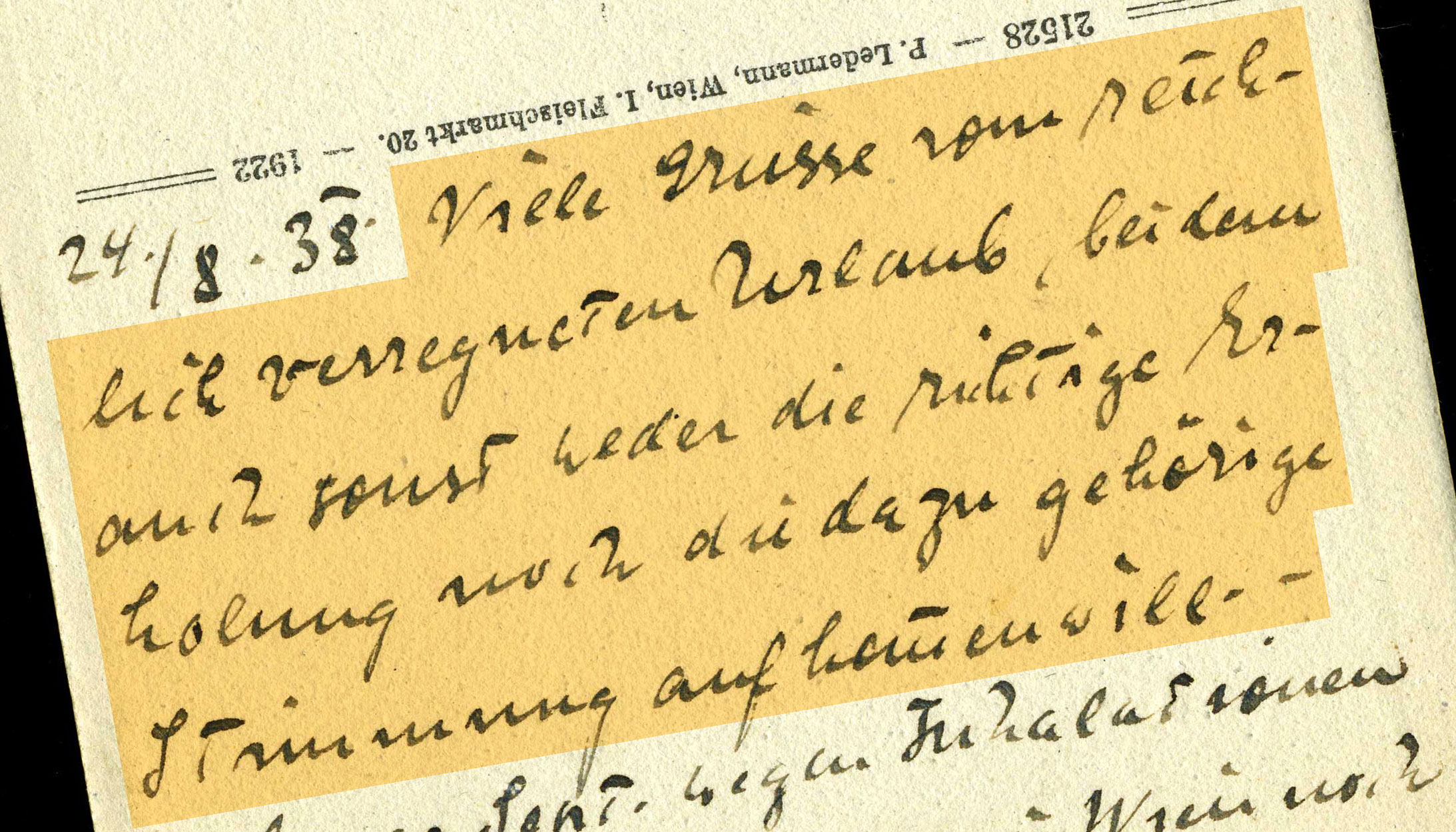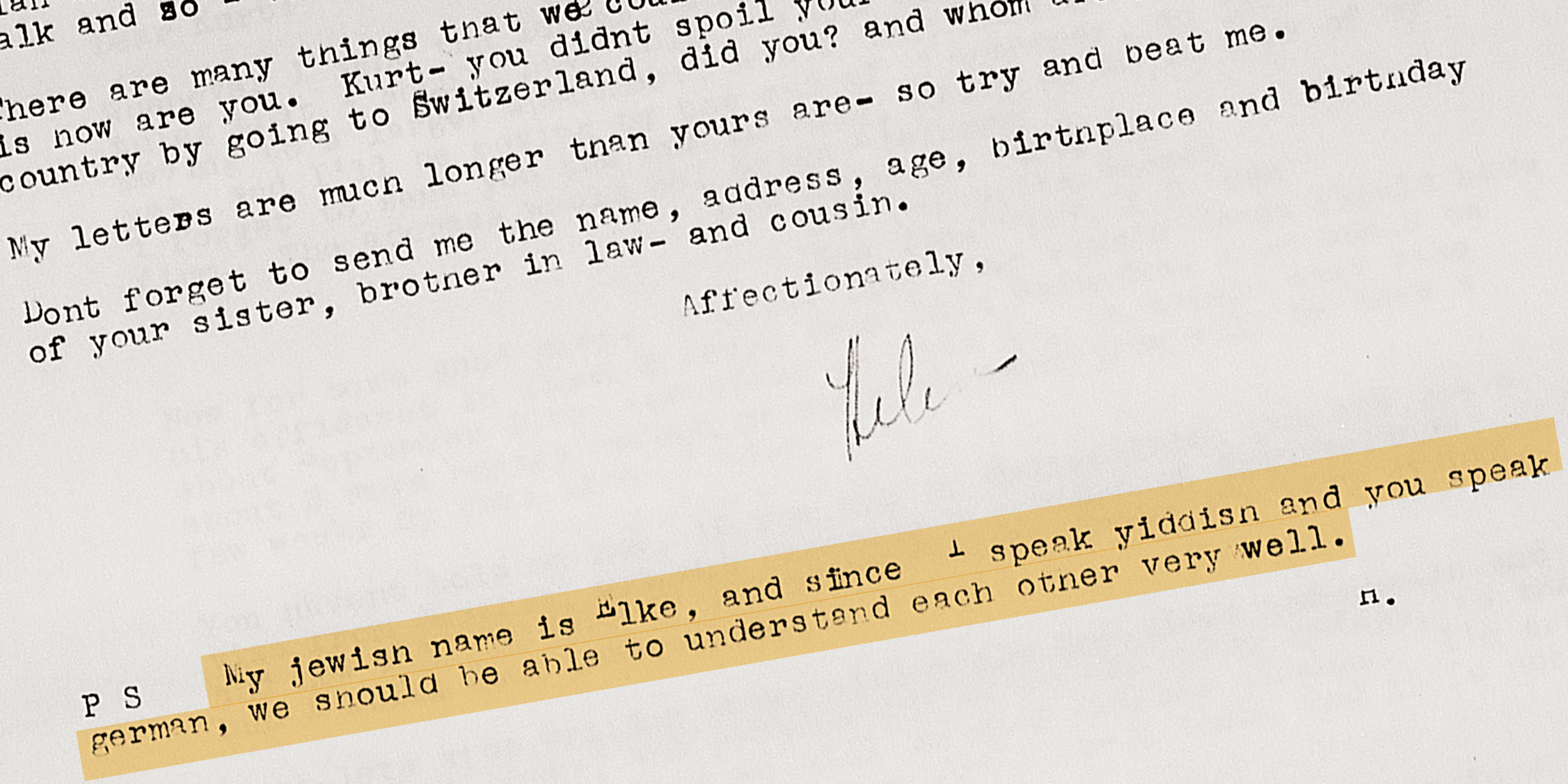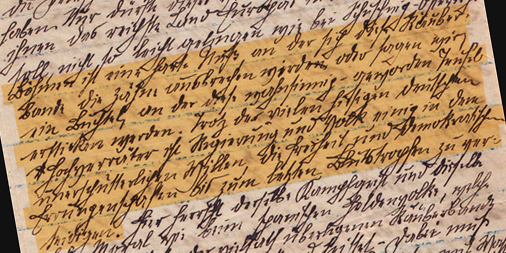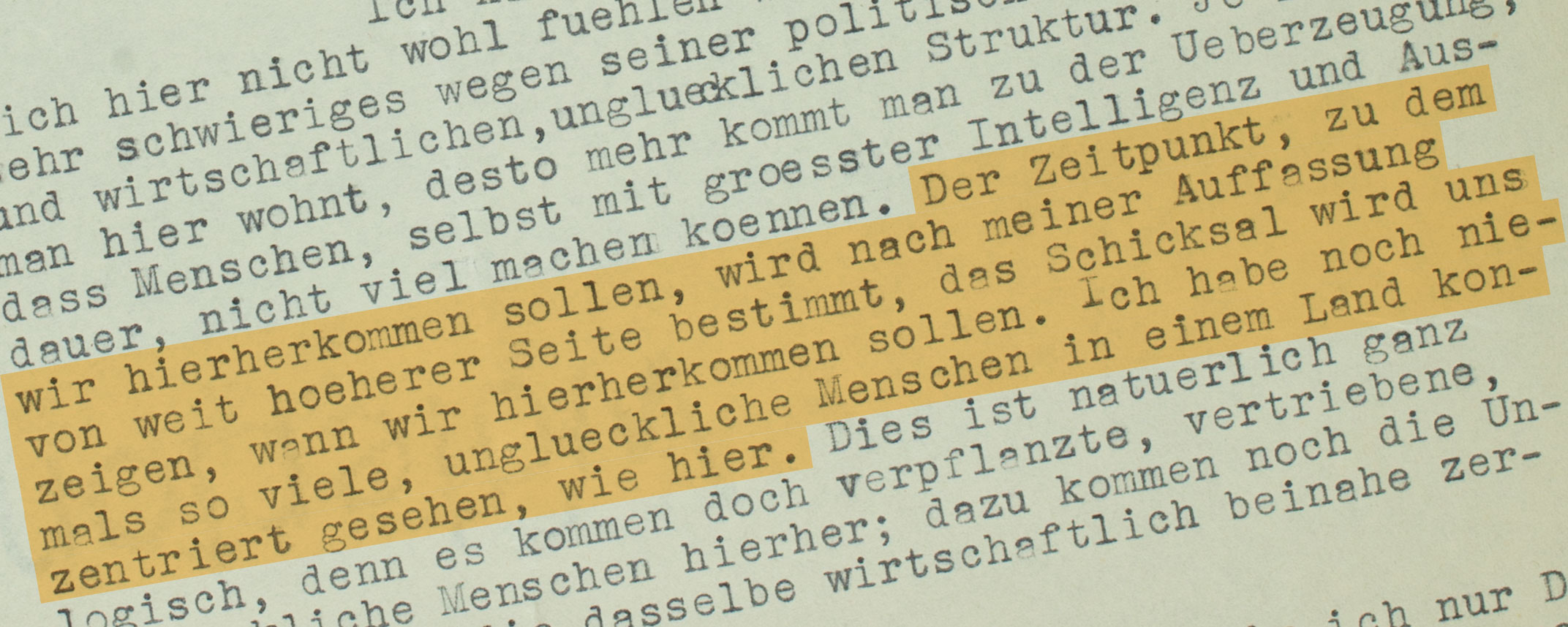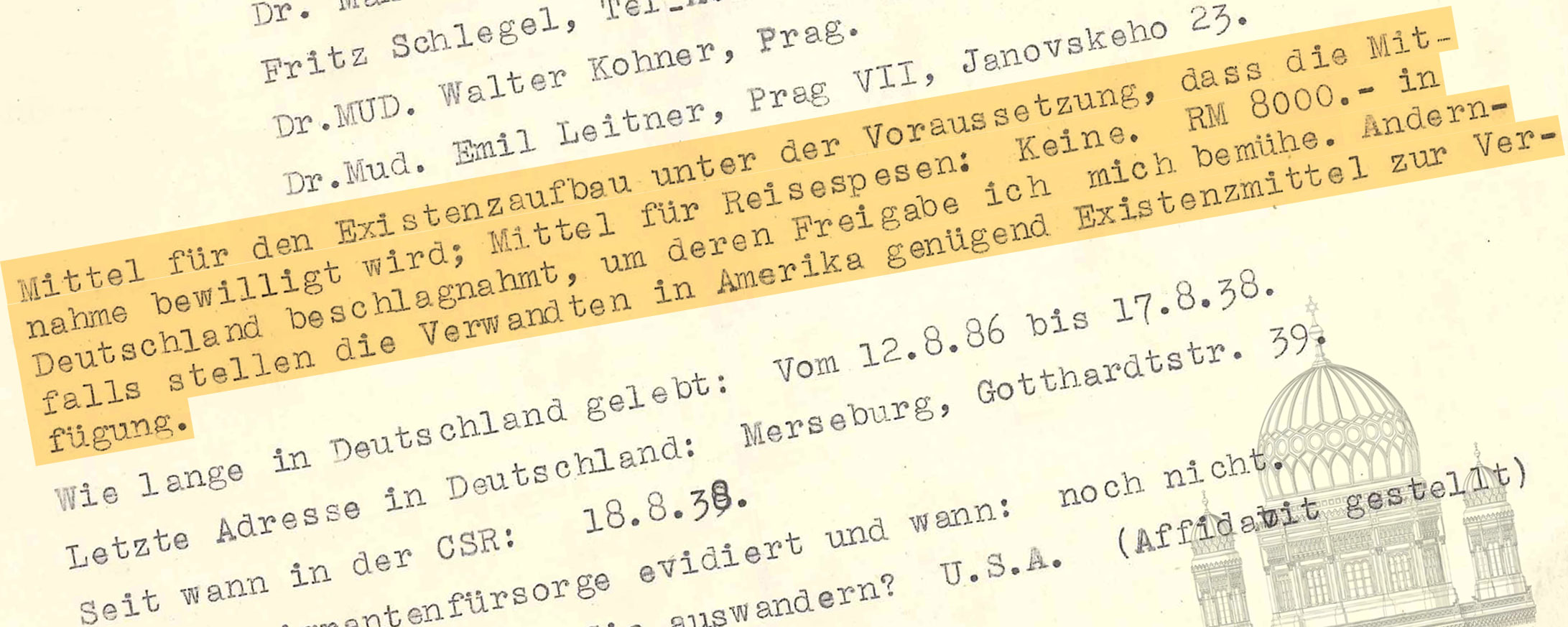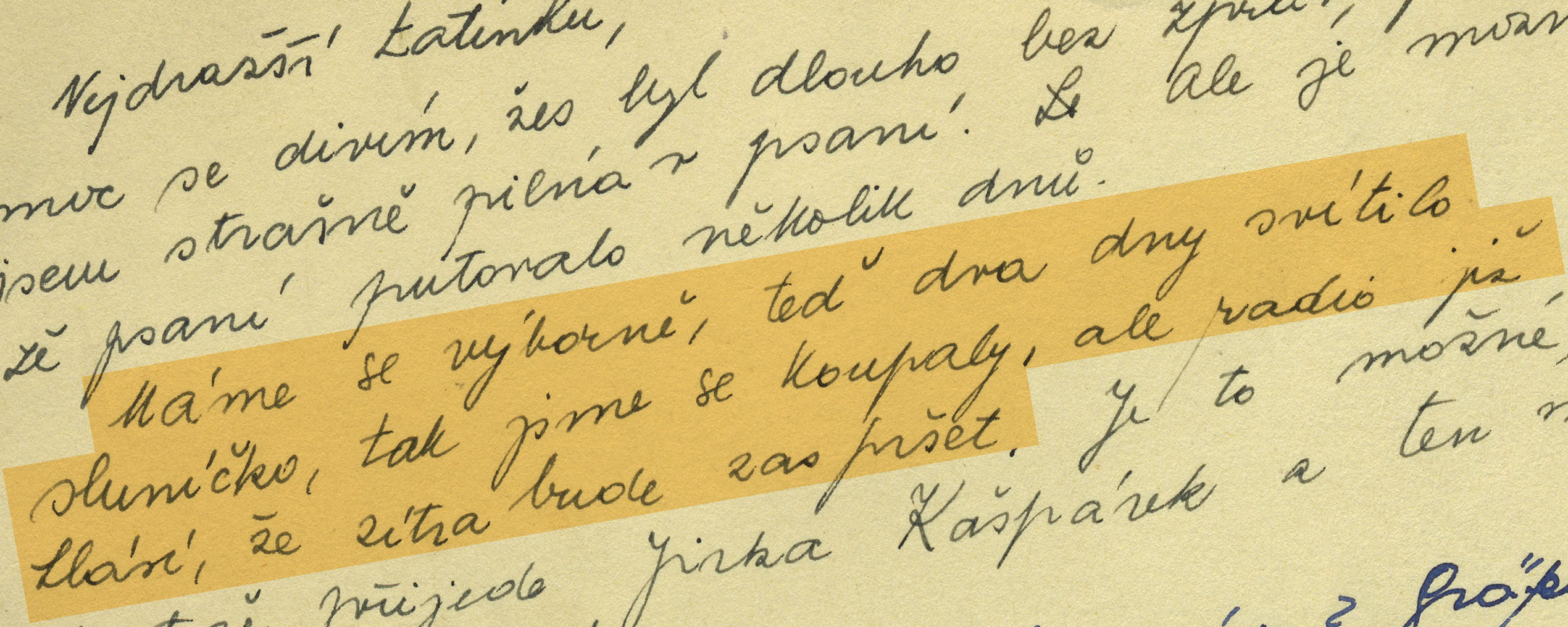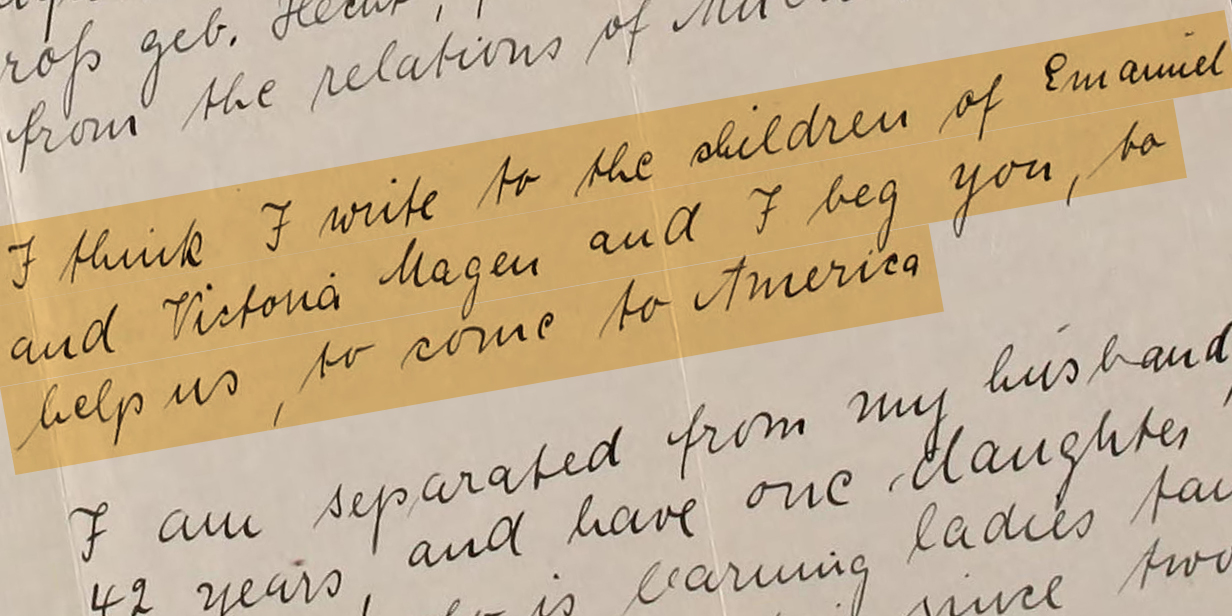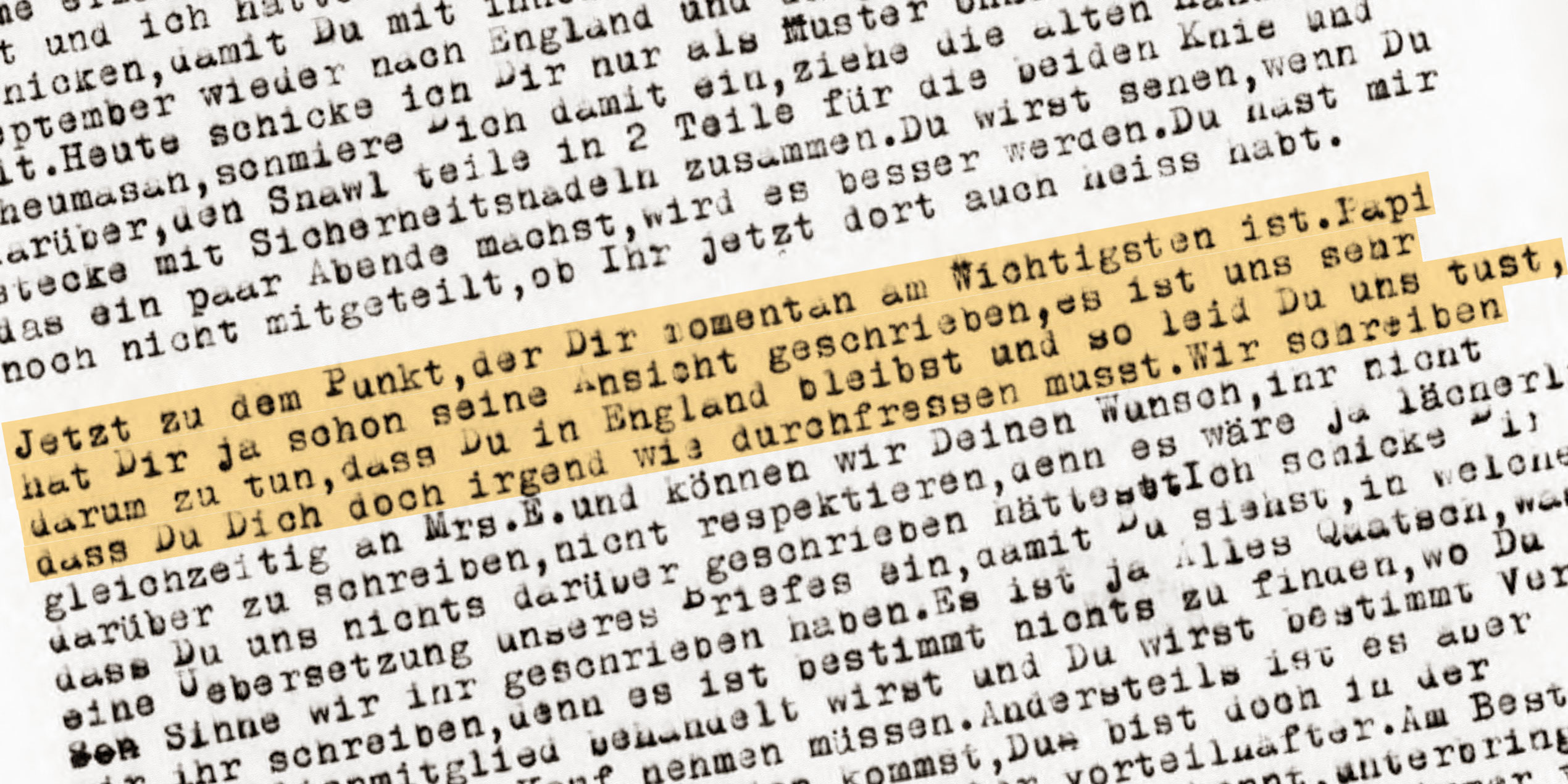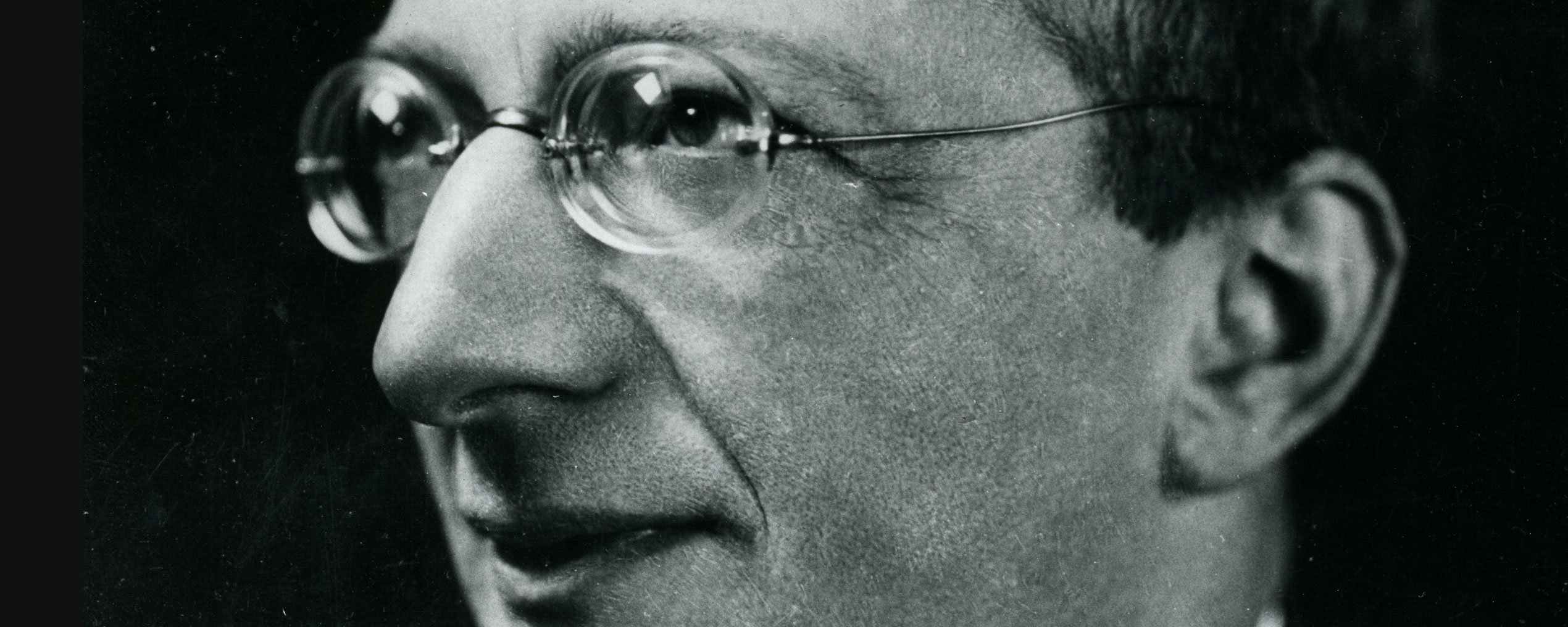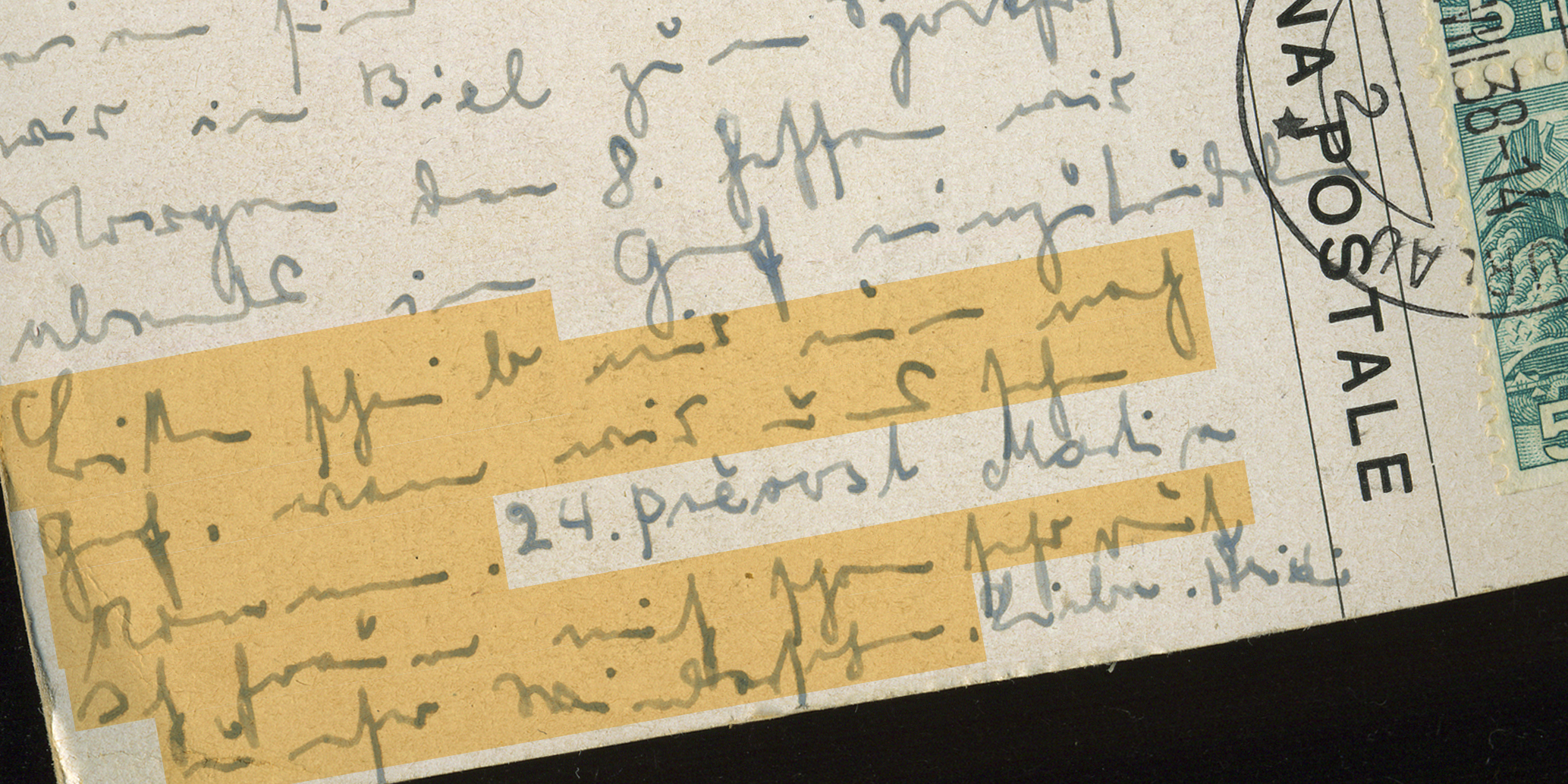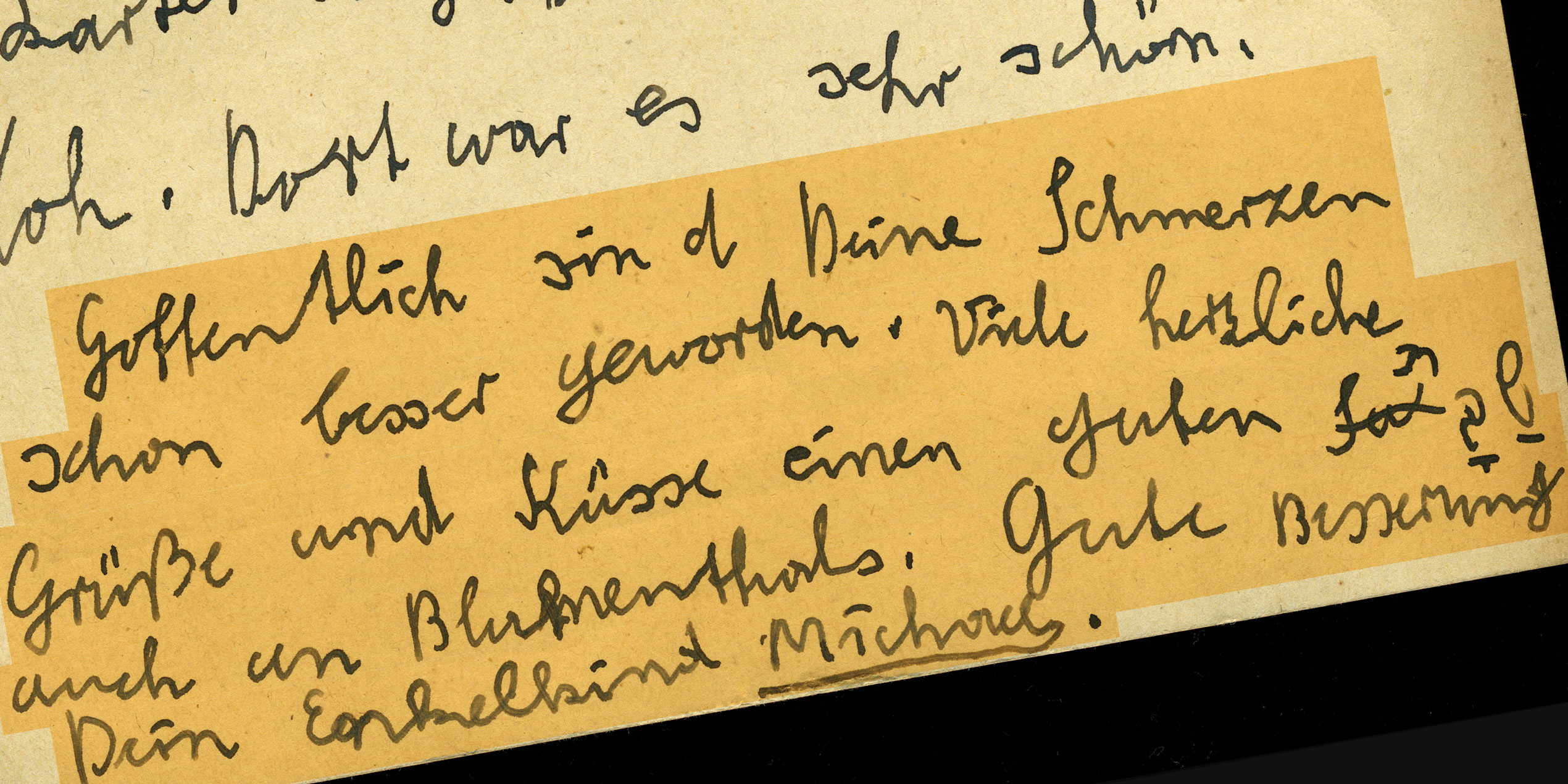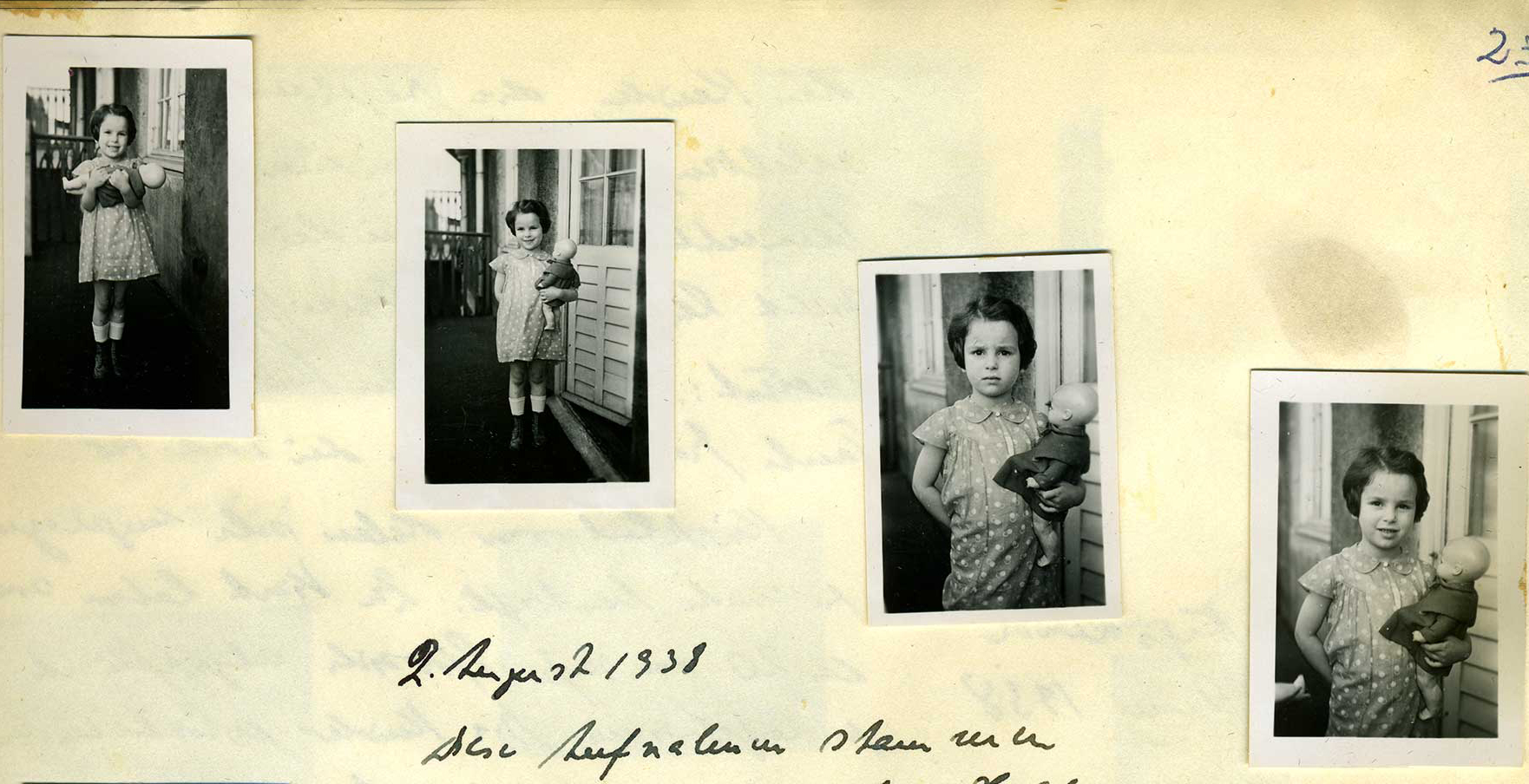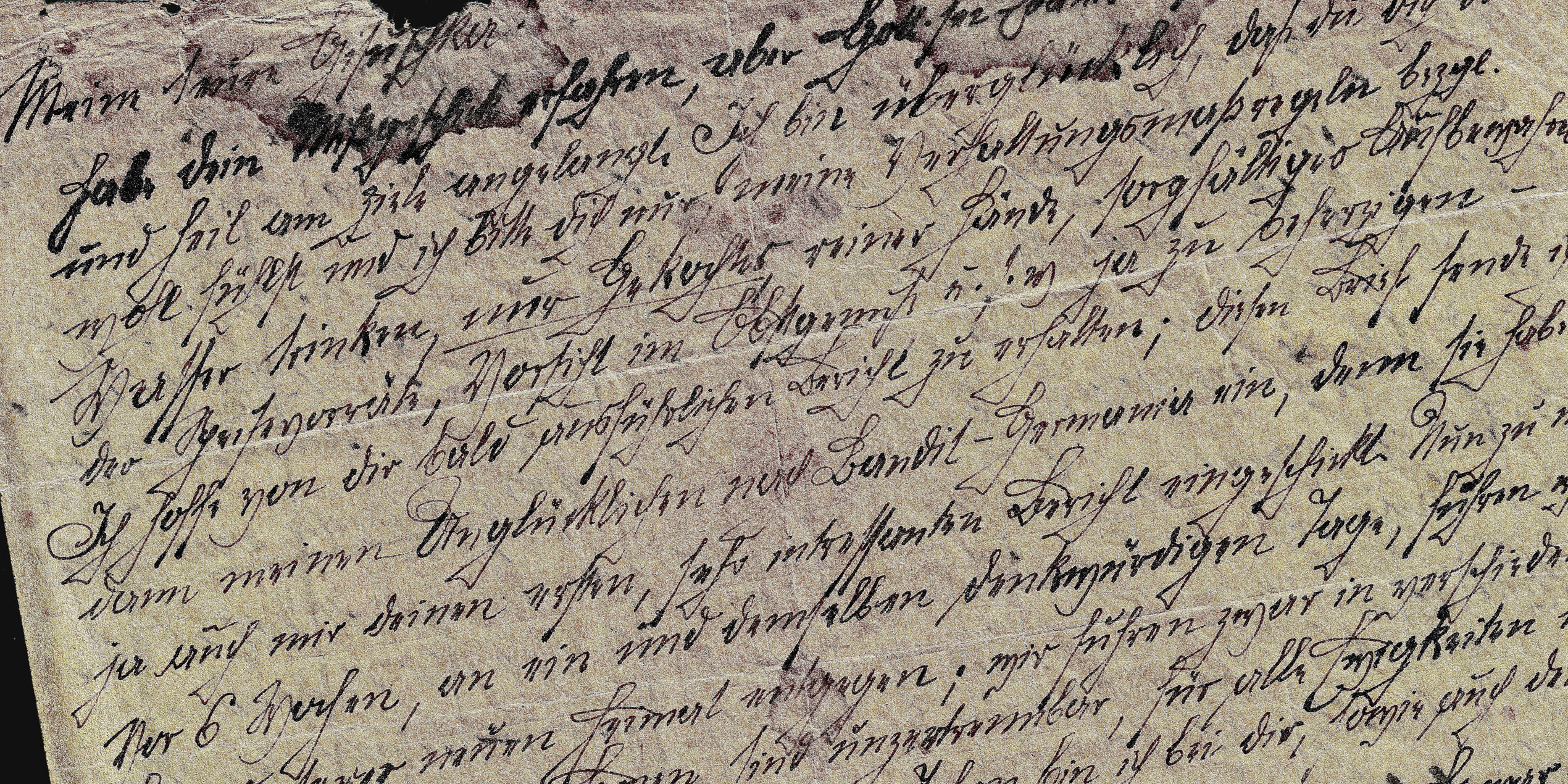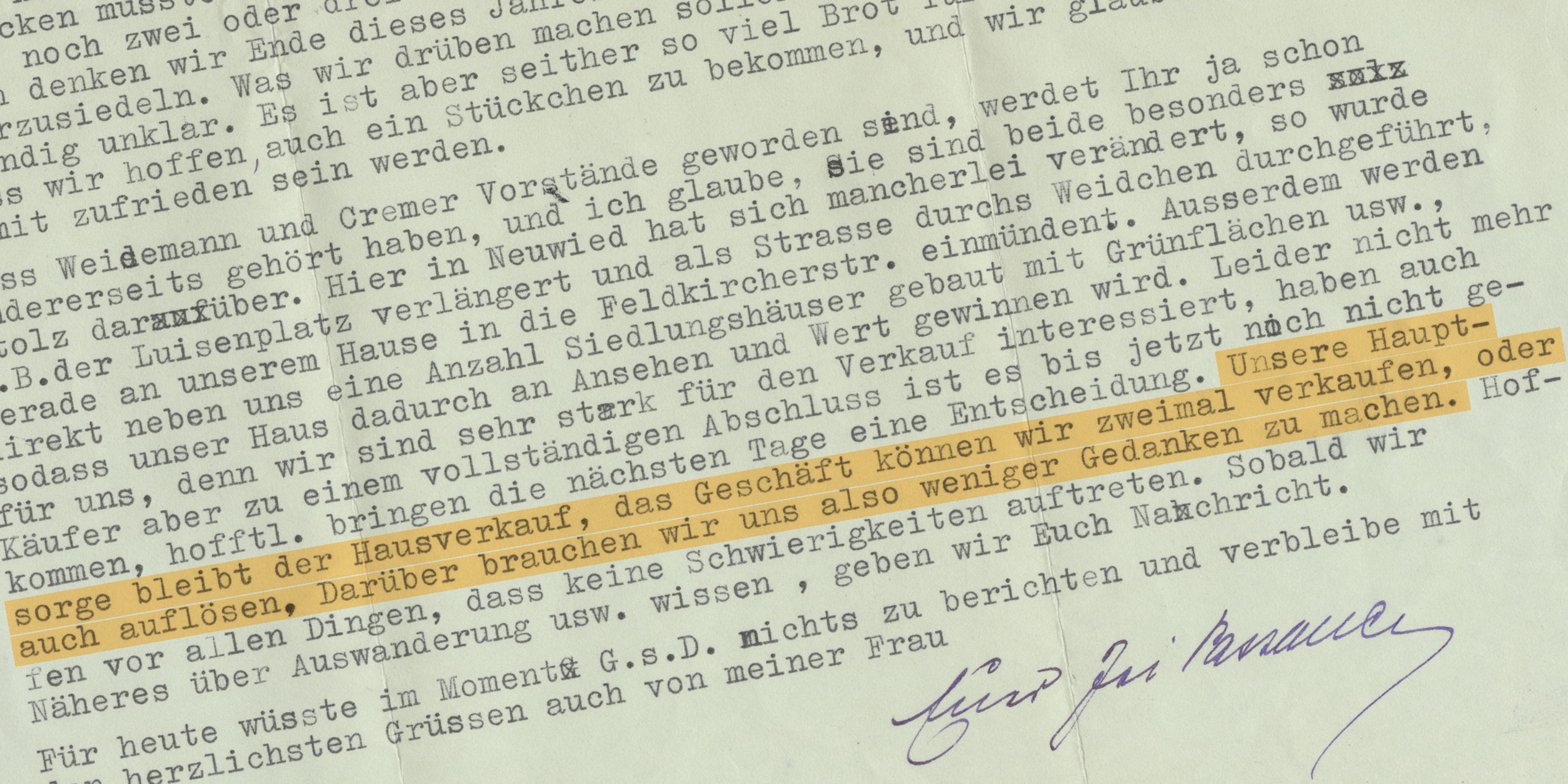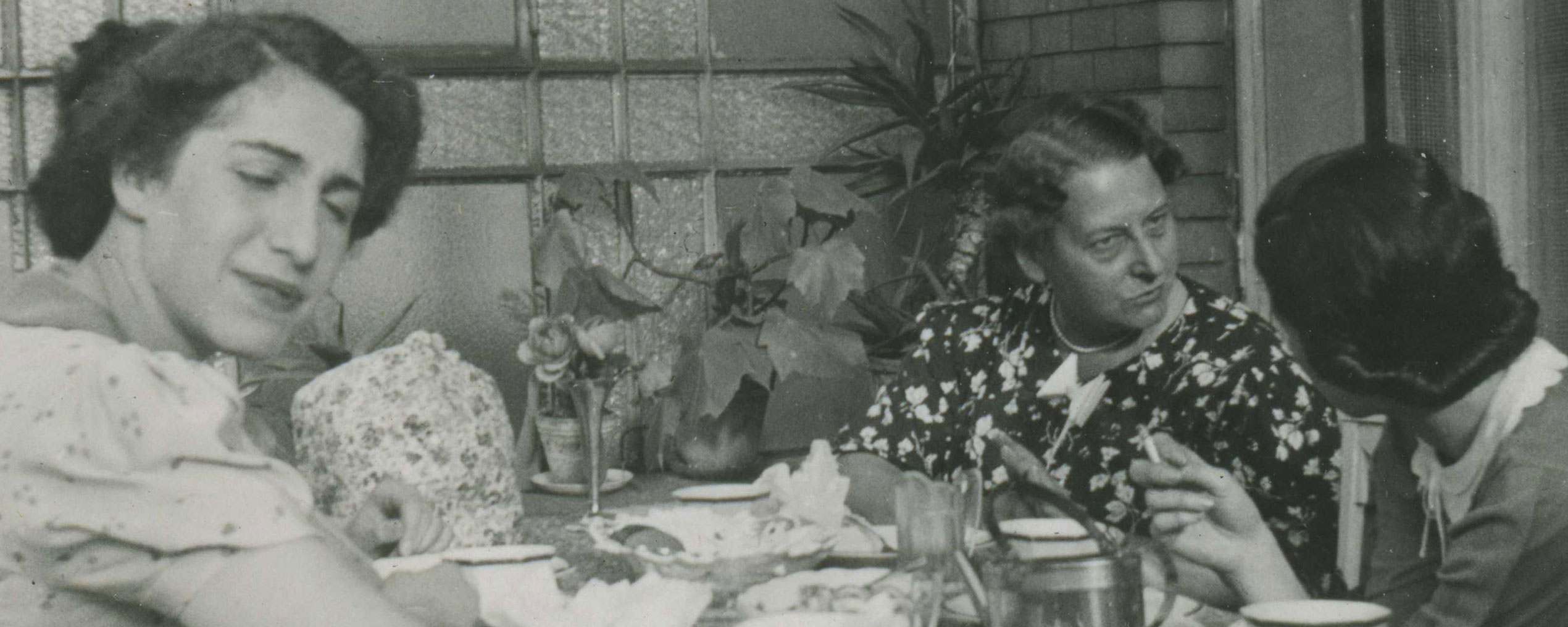Adding insult to injury
After the death of her husband, Amalia Carneri struggles with having to sell her property
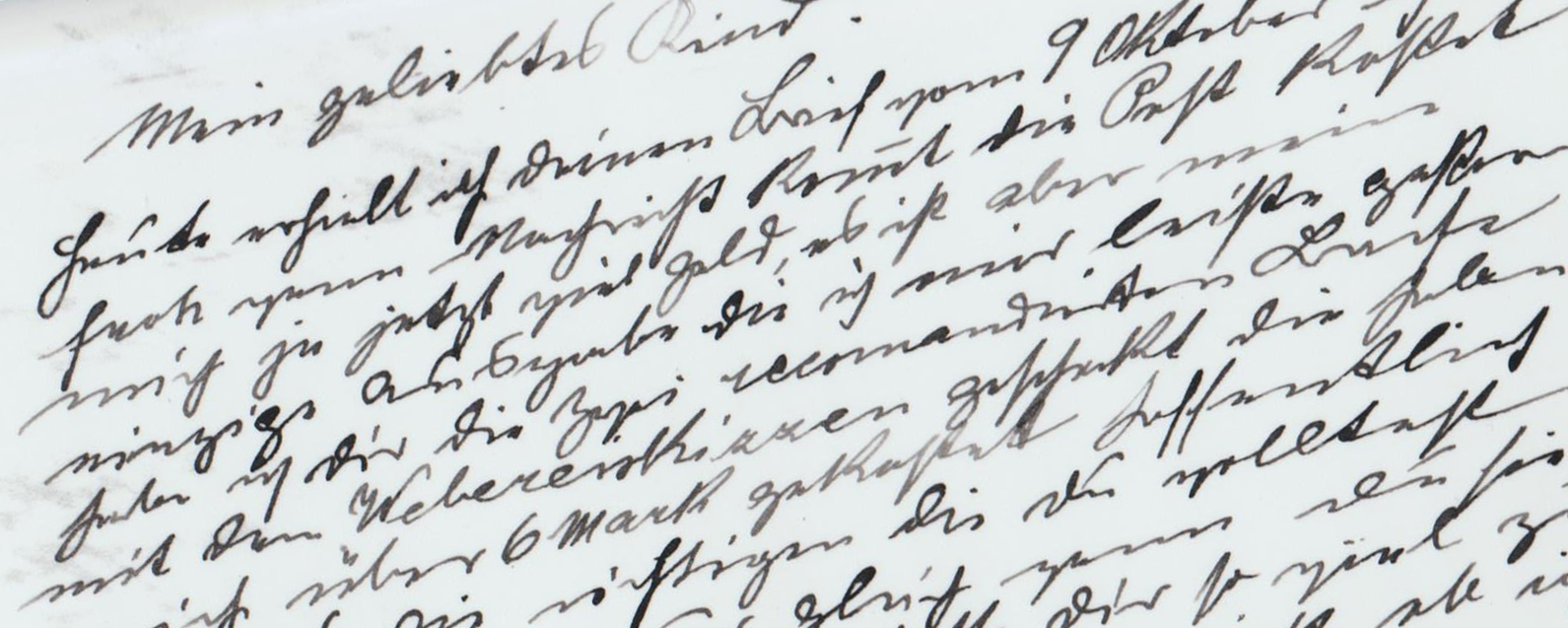
VIENNA/NEW YORK
Amalia Carneri had seen better days. Once a celebrated opera and concert singer, she now had to cope with the death of her husband, the mine inspector Heinrich Pollak, as well as being forced to leave her family home of many years in Vienna and the distressing political situation all at once. In this letter, dated October 19th, to the elder of her two sons, Fritz, who had fled to America, she describes at great length her difficulties selling her possessions. Even with the assistance of a dubious helper, she is forced to sell below value. Not knowing what her widow’s pension will be and with only a vague hope to join Fritz in America one day, she is in a state of palpable restlessness, and her boys are her only comfort.
SOURCE
Institution:
Courtesy of Nancy Polk, Woodbridge, Connecticut
Original:
Letter of Amalia Carneri's to her son, Fritz Pollak








































